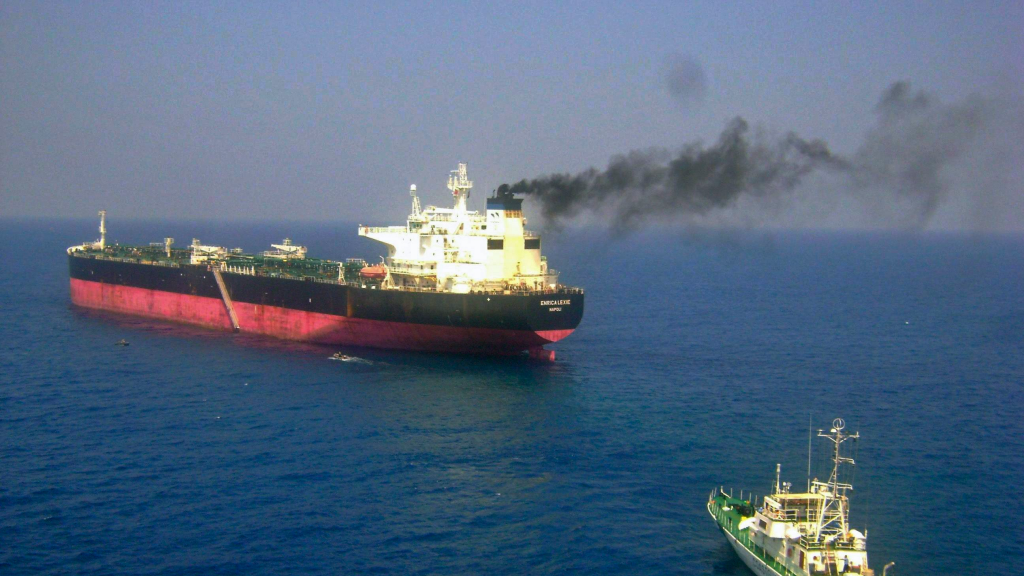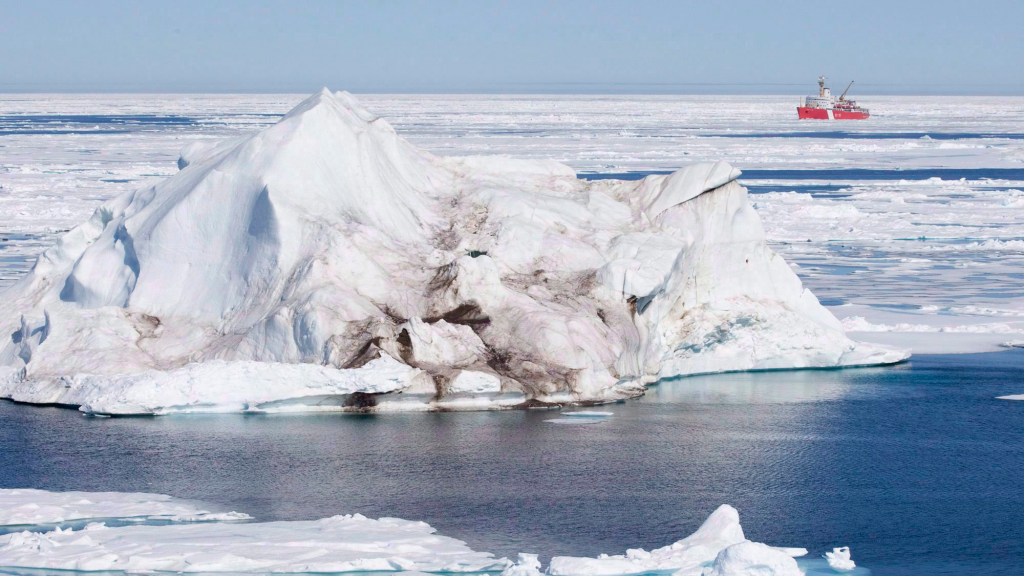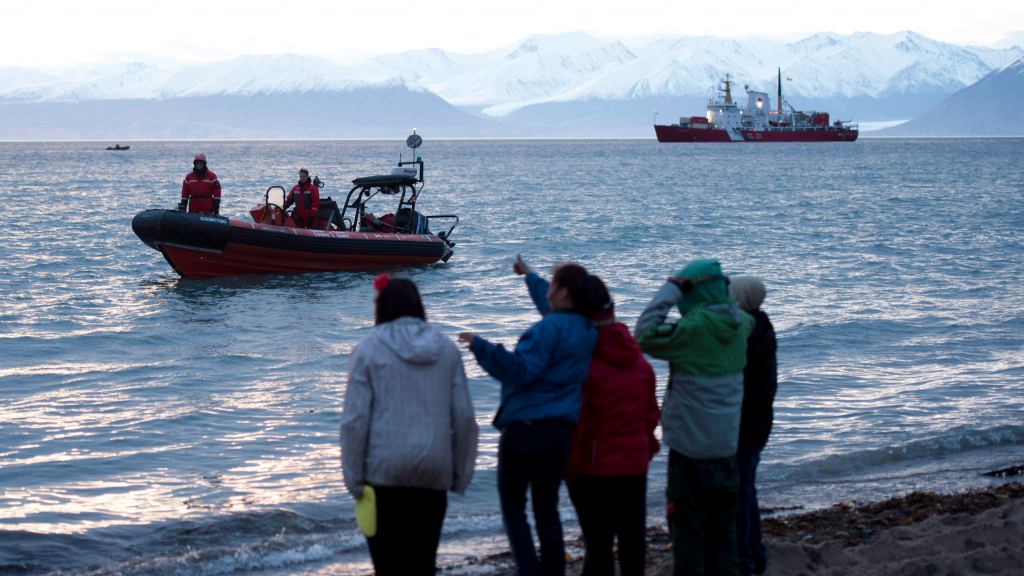New “Frankenstein” shipping fuel could further pollute the Arctic, environmental groups say

A coalition of environmental groups is demanding answers from the oil refining and shipping industries after it emerged that new blends of marine fuels designed to reduce acid rain-causing sulphur emissions have instead increased emissions of “super pollutant” black carbon, a key climate change driver.
According to a German study presented to the International Maritime Organization, some of the new blends of low sulphur fuels developed and marketed by oil companies to comply with UN-mandated air pollution standards in the marine shipping that came into effect on Jan. 1 will actually lead to a surge in the emissions of black carbon.
The study submitted by Germany and Finland to the IMO’s upcoming meeting in February found that these new very low sulphur oil (VLSFO) blends contain high levels of aromatic compounds which, when combusted, could result in up to 85-per-cent increase in emissions of black carbon when compared with heavier fuel oil and distillate fuels used by the shipping industry.
‘A super pollutant’

Black carbon is a short-lived “climate forcer,” second only to carbon dioxide (CO2) and is of particular concern in the Arctic, according to documents submitted to the IMO by Canada. When the soot-like substance gets deposited on snow and sea ice, it ends up absorbing more sun light, enhancing atmospheric and surface warming impacts.
“There are serious questions to be answered about how these blended super pollutant ‘Frankenstein’ fuels ever came to market,” said in a statement John Maggs of Seas at Risk, a European marine protection NGO.
“It beggars belief that amidst a global climate crisis, the marine fuel industry could develop these VLSFOs without knowing their effect on black carbon emissions and the climate, particularly in the Arctic – especially as the IMO has spent almost a decade considering how to reduce black carbon emissions from shipping.”
Sulphur cap in marine fuels
The IMO has introduced the 0.5 per cent sulphur content cap in marine fuel with the aim of reducing harmful sulphur emissions from ships by 77 per cent by 2025.
This means that the shipping industry can no longer use heavy fuel oil, also known as bunker oil, the cheapest and the dirtiest marine fuel oil, which normally contained up 3.5 per cent of sulphur, said Andrew Dumbrille, a World Wildlife Fund – Canada specialist in sustainable shipping.
The expectation was that the IMO’s low sulphur cap would encourage the shipping industry to transition to the less polluting distillate fuels, Dumbrille said.
But instead the shipping and the oil refining industries set about developing new blends of heavy fuel oil that contain less sulphur but are far more polluting than HFO when it comes to black carbon emissions, Dumbrille said.
These new blends are more expensive than bunker oil but still cheaper than distillate fuels such as marine diesel, Dumbrille said.
The shipping industry’s use of these new blends of low sulphur oil is driven by the desire to save money at the expense of the environment, he added.
Representatives of Canada’s shipping industry could not be reached for comment in time for publication.
Call to switch to distillate fuels
Sian Prior, lead adviser to the Clean Arctic Alliance, a coalition of non-governmental organisations working for a ban on heavy fuel oil (HFO) from Arctic shipping, said the IMO needs to take immediate action.
The shipping industry’s use of very low sulphur fuel oil, introduced to comply with the IMO’s 2020 sulphur cap, will lead to a massive increase in black carbon emissions, and this will both accelerate the melting of Arctic sea ice and have a major impact on Earth’s climate, she added.
The coalition of 18 NGOs is also calling for the UN body that regulates the global shipping industry to support an immediate switch to distillate fuels for ships in the Arctic and develop a global rule prohibiting fuels with high black carbon emissions.
A ban on heavy fuel oil use is already in effect in the Antarctic.
Clean-up nightmare
The Canadian submission to the upcoming 7th Session of the IMO’s Sub-Committee on Pollution Prevention and Response (PPR7) in February says banning HFO in the Arctic would bring environmental benefits but would come at a higher economic cost for northern communities dependent on the marine resupply from southern Canada.
HFO spills as a result of an accident present the biggest threat to the Arctic environment, experts say.
HFO has a high viscosity and density and does not evaporate quickly, and can stay in the environment for a long time, according to the Canadian submission.
“The persistence of HFO means that there is a higher likelihood of physical fouling and ingestion of oil by marine wildlife,” the report says. “An HFO spill would also present possible shoreline contamination, threatening wildlife and traditional activities of Indigenous and Inuit populations, who may become exposed to the contamination directly or indirectly.”
Clean-up efforts will be particularly challenging given the cold environment, the enormous distances and the lack of infrastructure and resources to mount a quick response, the report notes.
“Although other, lighter fuels (e.g., marine diesel) that could replace HFO have higher toxicity to marine life, they evaporate more quickly and are less persistent in the environment,” the report says. “Therefore, HFO presents a greater longer-term ecological risk compared to other marine fuels that are available, such as marine diesel and other distillate fuels.”
Lower sulphur dioxide emissions
The submission says an HFO ban could also result in an 80 per cent reduction in sulphur oxide (SOx) emissions compared to emissions under the IMO’s 2020 sulphur cap program.
Sulphur oxides are emitted from ship engines during the combustion process of marine fuels containing sulphur, like HFO and other fuels derived from crude oil, the submission says.
Once in the atmosphere, SOx can lead to acid rain, with associated acidification and eutrophication impacts on sensitive Arctic aquatic and terrestrial systems, it adds.
A ban on the HFO in northern waters is also estimated to cut black carbon emissions in Canada’s Arctic by an average of 31 per cent for vessels switching from HFO to distillate fuels.
Furthermore, the HFO ban would also cut particulate matter emissions from all shipping in the Canadian Arctic by 31 per cent – with an average reduction for vessels switching from HFO to distillate of 39 per cent.
Increased costs for Northern communities

However, the increased cost of fuel due the HFO ban could result in additional product price increases for community resupply products in the range of 0.7 per cent to 1.9 per cent, the report says.
These fuel price increases could increase household expenditures by $248-$679 per household per year, the Canadian submission notes.
“Canada is of the view that, when weighing action to reduce the environmental risks associated with the use and carriage for use as fuel of HFO in the Arctic, social, economic and other impacts on vulnerable Arctic communities must also be taken into account,” the submission says.
Related stories from around the North:
Canada: Environmental groups welcome ban on dirty fuel by Arctic cruise operators, Radio Canada International
Denmark: More shippers and shipping companies boycott Arctic sea routes, but it isn’t solving the problem, experts claim, The Independent Barents Observer
Finland: Finland investigates oil leak risks from Baltic Sea shipwrecks, Yle News
Greenland: The Arctic shipping route no one is talking about, Cryopolitics Blog
Iceland: Iceland to restrict heavy fuel oil use in territorial waters, Eye on the Arctic
Norway: Hybrid-powered electric cruise ship navigates Northwest Passage, CBC News
Russia: Shipping figures rising on Russia’s Northern Sea Route, The Independent Barents Observer
United States: Carnival Corporation ships switch to cleaner fuel on Arctic cruises, Radio Canada International



